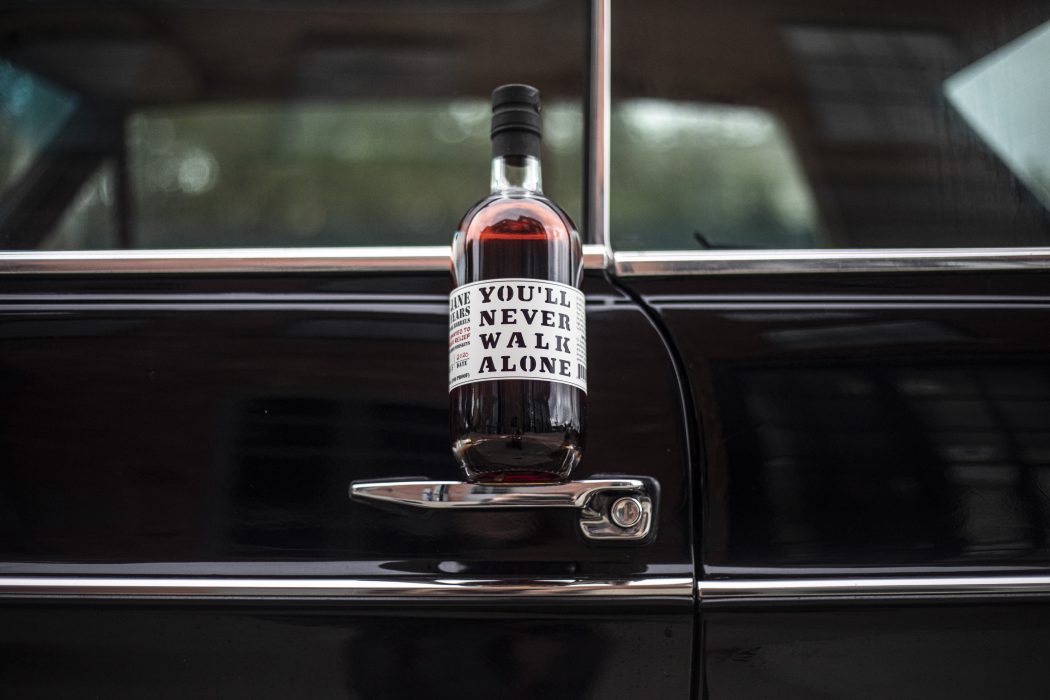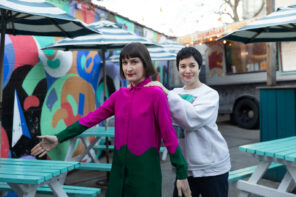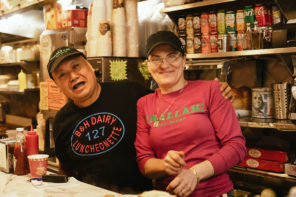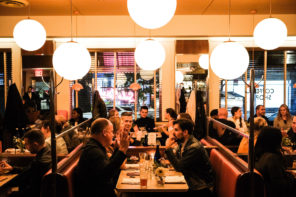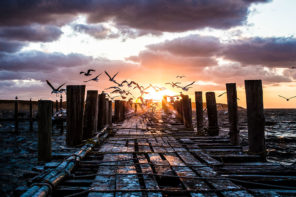Widow Jane “You’ll Never Walk Alone” bourbon bottling benefits bartenders
It’s always nice to hear someone tell you that you’ll never walk alone. Especially after the world decided to jump into a volcano and shake up quite a few aspects of life the way we knew it. The restaurant and bartending industry took a rather hard hit in the midst of this whole pandemic, but the silver lining beams through as people banded together to help lift each other back up. Our friends over at Widow Jane wanted to help make a positive impact for bartenders in need. And what better way to raise money for bartender relief than through a bottle of bourbon? A product that never goes out of demand with 100 percent of the proceeds going to the United States Bartender’s Guild (USBG) National Charity Foundation, Children of Restaurant Employees (CORE) and Covid-19 relief, the 10-year old, limited-edition bottled bourbon called You’ll Never Walk Alone. Helping to get people back on their feet with bottles of bourbon. (To be fair, bottles of bourbon often work the other way if you have a bit too much).
This limited-edition bottling (just 3,000 bottles are rolling out), the first 100-proof batch ever to leave the distillery, is that offer of a hand up. As Head Distiller and Blender, Lisa Wicker told us, “It’s clear that the need for economic support among hospitality professionals remains high.” Widow Jane plans to donate a minimum portion of $50,000 to USBG and CORE from the proceeds of You’ll Never Walk Alone bottle sales. Great bourbon for a great cause.
“At Widow Jane, our bartender and bar community are an important part of our frontline. We want them to know they are missed, that we are there for them and that ‘You’ll Never Walk Alone.’”

Taking it To-Go
Since last March things have been a dumpster fire for almost all of us, but especially for bartenders. We asked a few about how they’ve dealt with it, what they’ve learned, how things might change in the long term (can we keep the to-go cocktails please?) and how this bourbon bottling might help.
You know what they say, get comfortable being uncomfortable. But not sure ‘they’ really knew what was coming last March when they said that. Everyone had to figure it out and make things work, some more than others. Baking bread at home may have been one of those things, but persevering in the service industry when you’ve lost the way you serve most of your customers might have provided a few more bumps in the road than figuring out that sourdough starter.
Giuseppe Santochirico, bartender at Halftone Spirits, Finback Brewery and Almond Restaurant in New York City, told us that this past year has driven him to be keenly aware of waste. Waste-consciousness has always been top of mind in restaurants (more so than at home at least) but “now I think it’s more of a need whereas before it was an effort. And hopefully that awareness and need will stay.” He’s made even greater efforts than before to take creative measures to increase shelf stability, and finding more uses for every ingredient, attempting to use everything possible as opposed to throwing things away.
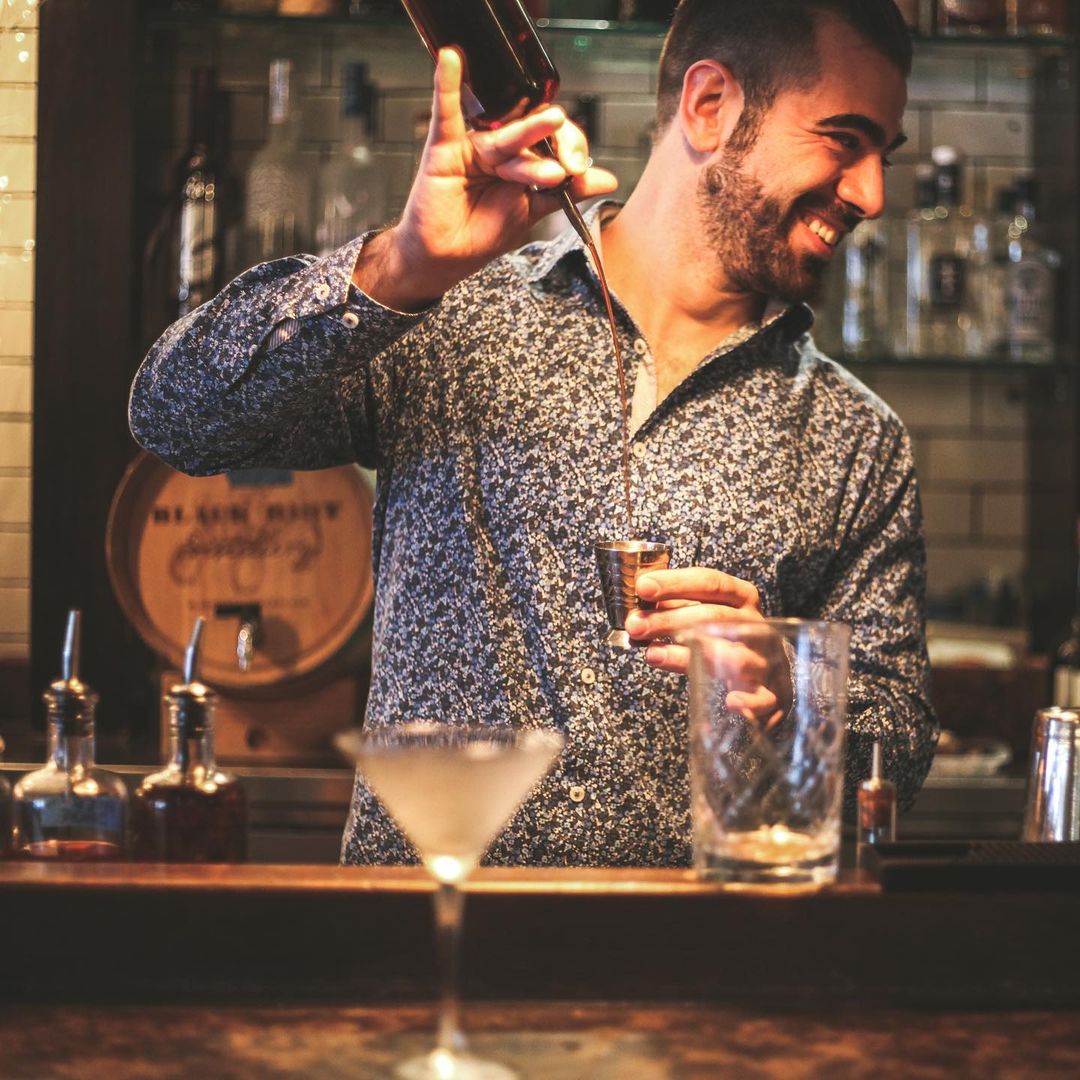
Getting creative played a major role in keeping things afloat in the midst of the mess. To-go drinks were one of those creative pivots. One that might stick around.
Located in Dallas, Marian Scaturro, bartender at Ayahuasca Cafe and Beverly’s Bistro, described how at the peak of summer, to-go frozen drinks were a big hit. We’ve been to Dallas. We can understand why. She described one way they stepped up this aspect with bottled drinks: “I have a bottle capper I like to use to create transportable cocktails, plus that’s a great way to recycle glass bottles. My restaurant got some cute stickers with our name and logo on them to decorate the frozen cocktails to do some guerilla marketing and add a more personal touch.” Reusing old bottles, Giuseppe Santochirico would be so pleased.
Phil Anova, bartender at Anju in Washington DC, says that he’d previously seen canned cocktails, and adopted it as a unique and cost-efficient way of selling cocktails that were headed out the door. Devyn told us they not only offered to-go craft cocktails—garnishes included on the side—but they also took their cocktail making classes to the comfort of your own home. They would provide a cocktail-making kit with all the ingredients, and customers could either have bartenders come to their house and teach them, or have a virtual lesson. Bringing the bar to you when you can’t go to the bar.
And Devyn Crook also from Dallas and bartender at The People’s Last Stand, has used the extra time to work on himself and his craft. Even if he can’t go to back to storring and shaking right away, when this is all over he doesn’t want to “look back and ask, ‘What if?’”

Of Firewater and Fire Extinguishers
Our bartender friends said that conversation is one of the things they value most and miss the most about the conventional bar setting. We hear the weather is a pretty good topic of conversation. Marian from Dallas wished people knew bartending was just as much of a career as all those white collar jobs you need degrees for. Like a lot of barkeepers, she’s got a degree and just isn’t using it, because she finds tending bars enjoyable and it brings in more money. “This isn’t a stepping stone—it’s a chosen path that I love. In Japan bartending is a trade profession that people apprentice for and it’s well respected, I sometimes wish Americans saw it that way.”
That one saying that goes “walk a mile in someone else’s shoes,” as you probably know, means far more than borrowing your friend’s Vans and taking a stroll through Central Park on your lunch break. There is a lot more to bartending than most might think. It’s not just popping bottle tops off of domestic beers and collecting a quick tip. In fact, it’s far more than that. Giuseppe emphasized the importance of being present and making the experience for the customer the most important part. Giving that experience weight and depth is his main goal, not just coming in, mixing some drinks and then heading out. It’s not just a job, but a responsibility to the bar and the guest. Phil concurred, mentioning how bartending isn’t just about making drinks, but to also entertain and to give people that personal interaction.
If there was one thing Kitty Bernardo, bartender at The Shanty, Patent Pending, and Bar Goto in New York City, would like people to understand it’s “that kindness goes a long way. We see the full range of human nature in one service, sometimes sitting right next to each other at the bar. We could be deep in the weeds with the world about to fall apart but one person’s patience and understanding makes all the difference.” Be patient, Jedi, they have quite a few things to juggle besides shakers.
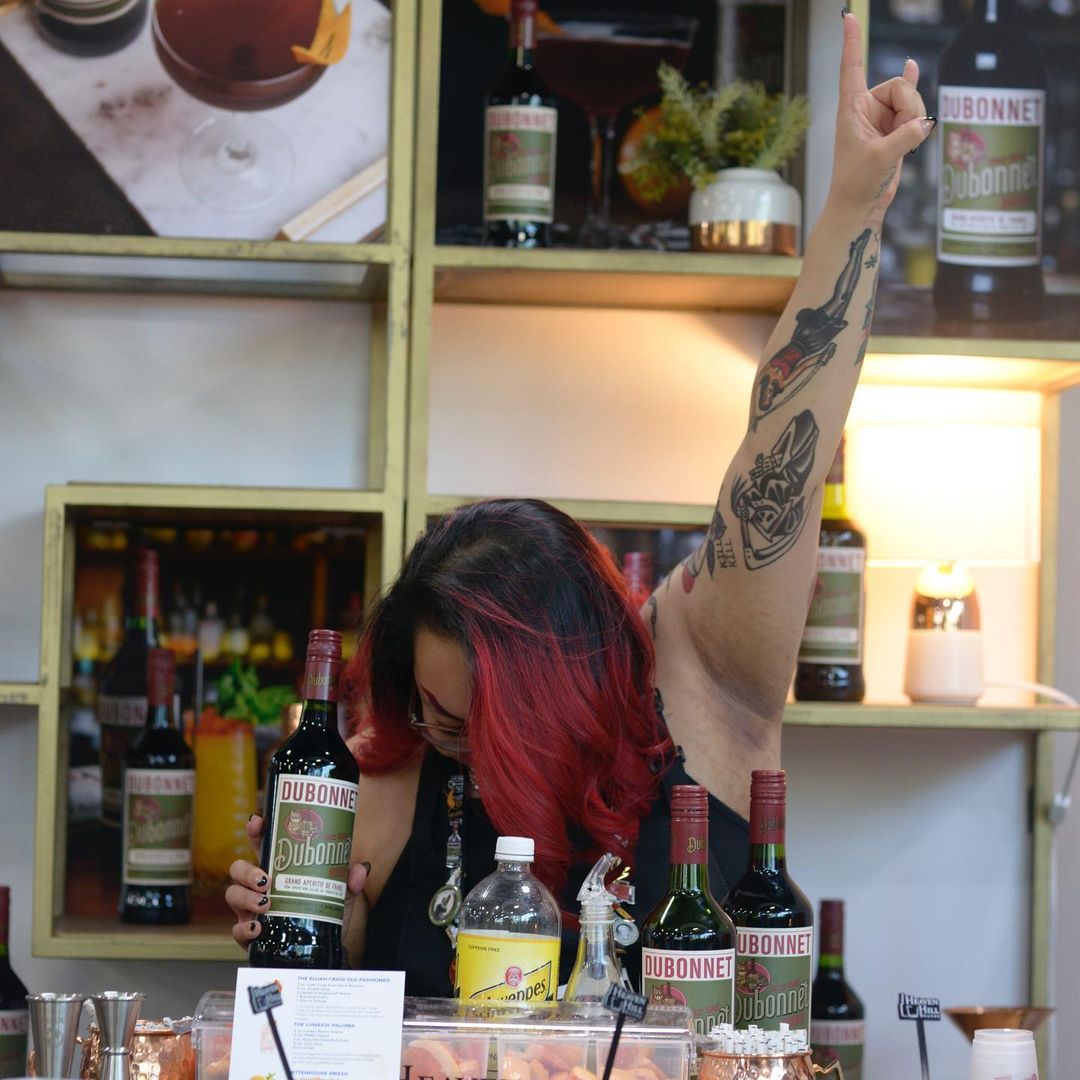
Go Walking (But Not Alone)
The proceeds from the You’ll Never Walk Alone initiative are being donated to CORE and USBG, which in-turn offer a Bartender Emergency Assistance Program (BEAP) grant.
All the bartenders we spoke to were grateful for the programs and their efforts to support people in the industry, especially those who had been hit harder than they have. Marian in Dallas told us that she knew a woman who received assistance from USBG that helped her afford childcare. “She has those expenses on top of normal rent and bills so I’m glad the assistance went to someone who I know needed it,” she said.

The team at Widow Jane distillery wishes to help keep the heads of bartenders throughout the United States high as best they can during this time. The good news is that a nice cocktail is a rather good coping mechanism, and even though we may not be able to sit and chat with those who are behind the bar, we can still enjoy their to-go cocktails. You can help, in your own way, to get some of them through this time simply by buying a bottle of bourbon. And the next time we are able to, we will sit there for quite some time and enjoy the presence and dedication they have for pouring us a drink. Or two. Tip big.

